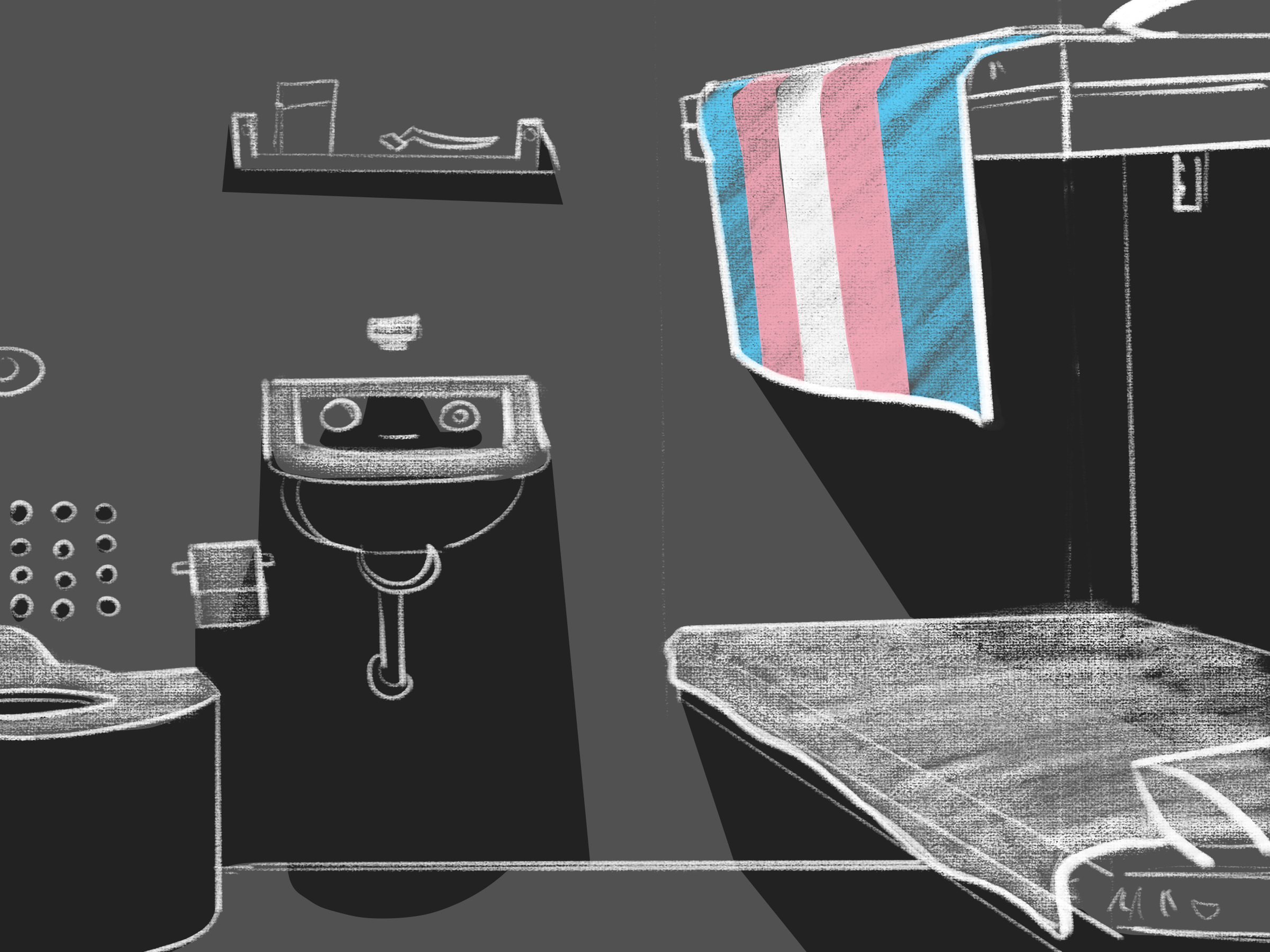Our institutions need to do better
Influencer Nikita Dragun was arrested at the beginning of the month at the Goodtime Hotel in Miami, Florida for felony battery on a police officer, and disorderly conduct.
According to hotel security guards, Dragun had allegedly been “causing a disturbance” and “walking around the pool area unclothed.” Afterwards, “Dragun flung an open water bottle toward the officers and the hotel staff, wetting one of the officers.”
When she appeared in a bond court video the following day, it was revealed that she had been kept in a men’s unit. In the video, Dragun asks judge Mindy Glazer, “Do I have to stay here in the men’s unit, still?”
It has obviously sparked a number of negative reactions on social media. However, what follows is even more shocking.
In the court video the judge seems to be writing something down, hearing but not really listening to Dragun’s request — or at least showing very little interest. Glazer then proceeds to say, “Yeah, I don’t make the rules up there but, they should make a proper accommodation for you.”
What does that mean? There shouldn’t be any accommodations, just put her in a women’s unit. The way it’s phrased also makes me furious. Is Dragun’s right to be in a jail that houses inmates of the same gender as her really an “accommodation?” Because we all know it would not be an accommodation if the inmate was cisgender. It would simply be their right.
According to Florida law, transgender inmates’ housing situations are evaluated on a case-by-case basis. A “transgender committee” made of medical and mental health professionals meet with the inmate to evaluate and make recommendations to the state as to where the person should be housed. These are however only recommendations, and it shows that transgender people’s rights are not fully protected in those cases.
Transgender inmates are over-represented as victims of many forms of abuse in prison. According to the National Center for Transgender Equality, they are ten times more likely to be sexually assaulted in prison.
If this is what happens to a popular figure in the US, imagine what can happen to any other trans person in our own country.
In January 2017, Prime Minister Justin Trudeau promised trans inmates that they would be housed based on their gender identity, stating that “trans rights are human rights.”
Up until then, Correctional Service Canada (CSC), which governs the federal penitentiary system, had a clear policy regarding the placement of inmates according to their gender assigned at birth.
According to a report on trans prisoners’ safety, “the CSC policy dictated that trans prisoners be assigned to either men’s or women’s penitentiaries based on their pre-operative sex. Consequently, trans women who had not undergone gender affirmation surgery were forced to live in men’s prisons instead of with the gender they identify with. This CSC policy has led to extreme difficulties for these women, who are often subjected to sexual harassment and assault.”
The day following Trudeau’s speech, the CSC stated that they would “consider” inmate placement based around gender identity and expression rather than gender assigned at birth.
Adopted in June of that same year, Bill C-16, An Act to amend the Canadian Human Rights Act and the Criminal Code, protects transgender individuals against gender discrimination. The Bill amended section 3(1) of the Canadian Human Rights Act and added “gender identity” and “gender expression” to the prohibited grounds of discrimination.
The Bill also amended the Criminal Code “to extend the protection against hate propaganda set out in that Act to any section of the public that is distinguished by gender identity or expression.” The amendment prevents the federal government from discriminating on the basis of gender, including in its prisons.
Then, in December 2017, the CSC adopted an interim policy to “accommodate based on gender identity or expression, regardless of the person’s anatomy (i.e. sex) or the gender marker on identification documents.” Included in the policy is the right of the inmate to be addressed by staff with the correct pronouns and, if a strip search were to be performed on them, the right to choose whether it be conducted by a male or female staff member.
This sounds really good and progressive in theory. But I have a hard time imagining an institution like the prison — that is founded on militarism, punishment, humiliation, racism and discrimination — to completely change its course of operating because they truly believe that trans lives matter.
My research proved me right on that point. In the 2019 case of Boulachanis v. Canada (Attorney General), the applicant had requested to be transferred from a male institution to a female institution after identifying as a woman. The CSC refused her request on the basis that the inmate would “pose too great a risk, in particular a risk of escape, to be placed in a women’s institution.” Although Justice Grammond of the Federal Court granted her the transfer and recognized that “keeping her in a men’s institution is discriminatory,” violating the interim policy, it is important to highlight how he got to that conclusion.
After clearly stating that Boulachanis is legally a woman, Justice Grammond then questioned whether she should be treated as one: “Stripped to its essentials, the issue is to determine whether Ms. Boulachanis should be treated as a man or as a woman.”
Blatant heteronormativity aside — if Boulachanis is a woman, why are we questioning her right to not only be seen as one, but also be treated as one by the law?
Probably for the same reason that Nikita Dragun was put in a male unit in Florida. It doesn’t matter what Bills, promises or policies they establish on paper, our institutions, governments and society still fail to protect transgender people.
